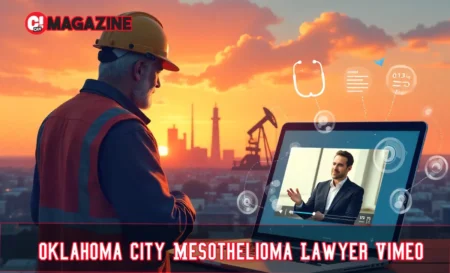Basic legal rights protect individuals from government overreach and ensure fair treatment in daily interactions.
Most people encounter legal situations without understanding their basic protections under the law.
What Are Legal Rights and Why Do They Matter?
Legal rights represent fundamental protections guaranteed by the Constitution and federal laws.
These rights create a shield between individuals and potential abuse by government authorities, employers, or businesses.
Understanding basic legal rights helps people make informed decisions during police encounters, workplace disputes, and consumer transactions.
Every citizen possesses these rights regardless of background, income level, or social status.
Legal protections exist to maintain fairness and prevent discrimination in various life situations.
People who understand basic legal rights can better protect themselves from exploitation and unfair treatment.
Constitutional Rights That Protect Daily Life
Freedom of Speech and Expression
The First Amendment guarantees the right to express opinions without government interference.
This protection covers verbal speech, written communication, peaceful protests, and symbolic expression like clothing or art.
People can criticize government officials, share political views, and participate in public demonstrations.
However, speech that incites violence or creates immediate danger receives limited protection.
Private employers and businesses can restrict certain types of speech in their establishments.
Workers should understand that First Amendment protections apply to government censorship, not private workplace policies.
Right to Privacy and Protection from Searches
The Fourth Amendment protects against unreasonable searches and seizures by law enforcement.
Police generally need a warrant or probable cause before searching personal property, homes, or vehicles.
People have the right to refuse consent for searches in most situations.
Law enforcement can conduct limited searches during arrests or traffic stops for safety reasons.
Citizens should politely decline search requests and ask if they are free to leave.
Understanding privacy rights helps people avoid self-incrimination during police encounters.
Modern privacy rights also extend to digital communications, though technology creates new legal challenges.
Miranda Rights and Police Interactions
Understanding the Miranda Warning
Miranda rights must be read before police question suspects in custody.
These protections stem from the Fifth Amendment’s guarantee against self-incrimination.
The warning includes the right to remain silent and the right to legal representation.
People can invoke these rights at any time during police questioning.
Anything said without proper Miranda warnings may be excluded from court proceedings.
Smart individuals exercise their right to remain silent until speaking with an attorney.
Practical Tips for Police Encounters
Stay calm and keep hands visible during any police interaction.
Provide identification when requested but avoid volunteering additional information.
People should clearly state they are exercising their right to remain silent.
Request an attorney immediately if arrested or taken into custody.
Never resist arrest physically, even if the arrest seems unfair or unlawful.
Document the encounter details as soon as possible after the interaction ends.
Legal challenges to improper arrests should happen in court, not on the street.
Workplace Rights and Employment Protections
Equal Employment Opportunity
Federal laws prohibit workplace discrimination based on race, gender, religion, age, or disability.
Employees have the right to work in environments free from harassment and discriminatory practices.
People can file complaints with the Equal Employment Opportunity Commission for violations.
Workers receive protection from retaliation when reporting discrimination or unsafe conditions.
Understanding these rights helps employees recognize when employers violate federal employment laws.
Wage and Hour Protections
The Fair Labor Standards Act establishes minimum wage and overtime requirements for most workers.
Employees must receive overtime pay for hours worked beyond 40 hours per week.
People have the right to receive their final paycheck within state-mandated timeframes.
Workers can file complaints with the Department of Labor for wage violations.
Many states provide additional protections beyond federal minimum requirements.
Consumer Rights and Financial Protections
Credit and Debt Collection Rights
The Fair Credit Reporting Act gives people the right to accurate credit reports.
Consumers can dispute incorrect information and request free annual credit reports.
Debt collectors cannot use harassment, threats, or deceptive practices when pursuing payment.
People have the right to request debt validation and dispute questionable charges.
Understanding these protections helps consumers avoid predatory lending and collection practices.
Product Safety and Return Rights
Federal agencies regulate product safety standards to protect consumers from dangerous goods.
People have the right to refunds or exchanges for defective products in most situations.
Consumer protection laws vary by state but generally favor buyers over sellers.
Many purchases include implied warranties that guarantee basic functionality and safety.
Access to Legal Help and Resources
Public Legal Aid Services
Low-income individuals qualify for free legal assistance through legal aid organizations.
These services help with housing disputes, family law matters, and consumer protection issues.
Public defenders represent people who cannot afford criminal defense attorneys.
Many communities offer pro bono legal clinics for basic legal advice.
Legal aid eligibility depends on income levels and the type of legal problem.
Government Resources for Legal Information
The Legal Services Corporation website connects people with local legal aid providers.
State bar associations maintain directories of attorneys and self-help resources.
Court websites often provide forms and instructions for common legal procedures.
Government agencies like the EEOC and Department of Labor offer complaint filing assistance.
When to Seek Professional Legal Help
People should consult attorneys for serious criminal charges, complex civil disputes, or business matters.
Legal representation becomes essential when facing potential jail time or significant financial consequences.
Early legal consultation often prevents small problems from becoming major legal issues.
Most attorneys offer initial consultations to assess whether professional representation is necessary.
Real-Life Examples of Rights in Action
Police Encounter Scenario
During a traffic stop, an officer asks to search a vehicle without probable cause.
The driver politely declines consent and asks if they are free to leave.
This exercise of Fourth Amendment rights prevents potential evidence gathering without proper justification.
People who understand their rights avoid unnecessary legal complications.
Workplace Discrimination Case
An employee faces harassment based on religious beliefs and reports the behavior to management.
The employer retaliates by reducing hours and creating a hostile work environment.
The worker files an EEOC complaint and documents all discriminatory actions.
Federal protections ensure the employee can seek remedies for workplace violations.
Building Legal Awareness for Better Protection
Staying Informed About Legal Changes
Laws evolve through legislative action and court decisions that affect individual rights.
People should stay updated on changes that impact their daily lives and legal protections.
Community legal education programs help citizens understand new developments.
Regular legal education prevents people from losing rights through ignorance.
Teaching Rights to Family Members
Parents should educate children about basic constitutional protections before they reach adulthood.
Young adults need to understand police interaction rights and workplace protections.
Family discussions about legal rights create more informed and protected community members.
Knowledge sharing strengthens overall community awareness of legal protections.
Conclusion: Your Rights Are Your Shield
Essential legal rights serve as fundamental protections that every person deserves to understand and exercise confidently.
These constitutional and statutory protections form the foundation of a fair legal system.
People who understand their basic legal rights can better navigate challenging situations and protect themselves from unfair treatment.
Knowledge of basic legal protections empowers individuals to make informed decisions during police encounters, workplace disputes, and consumer transactions.
Regular education about basic legal rights strengthens democracy and ensures that constitutional protections remain meaningful in daily life.
The investment in legal knowledge pays dividends when people face unexpected legal challenges or need to advocate for their interests.
Basic legal rights remain the cornerstone of personal freedom and protection in American society.
Frequently Asked Questions
When should someone invoke their right to remain silent?
People should exercise this right during any police questioning, especially when in custody or if answers might be self-incriminating. It’s better to remain silent and request an attorney than to risk providing harmful information.
What happens if police search without a warrant or consent?
Evidence obtained through illegal searches may be excluded from court proceedings under the exclusionary rule. However, people should never physically resist searches and should address violations through legal channels later.
How can someone find free legal help if they cannot afford an attorney?
Contact local legal aid organizations through the Legal Services Corporation website, reach out to state bar associations for pro bono referrals, or visit courthouse self-help centers for basic legal guidance.
Do Miranda rights apply to all police encounters?
Miranda warnings are only required when someone is in custody and being interrogated. Police can ask questions during routine stops without providing Miranda warnings, but people still have the right to remain silent.
What should someone do if they experience workplace discrimination?
Document all incidents, report the behavior to human resources or management, and file a complaint with the Equal Employment Opportunity Commission within 180 days of the discriminatory action.
Can people represent themselves in legal proceedings?
While people have the right to self-representation, complex legal matters typically require professional assistance. Criminal cases with potential jail time and civil cases involving significant financial stakes warrant attorney representation.







